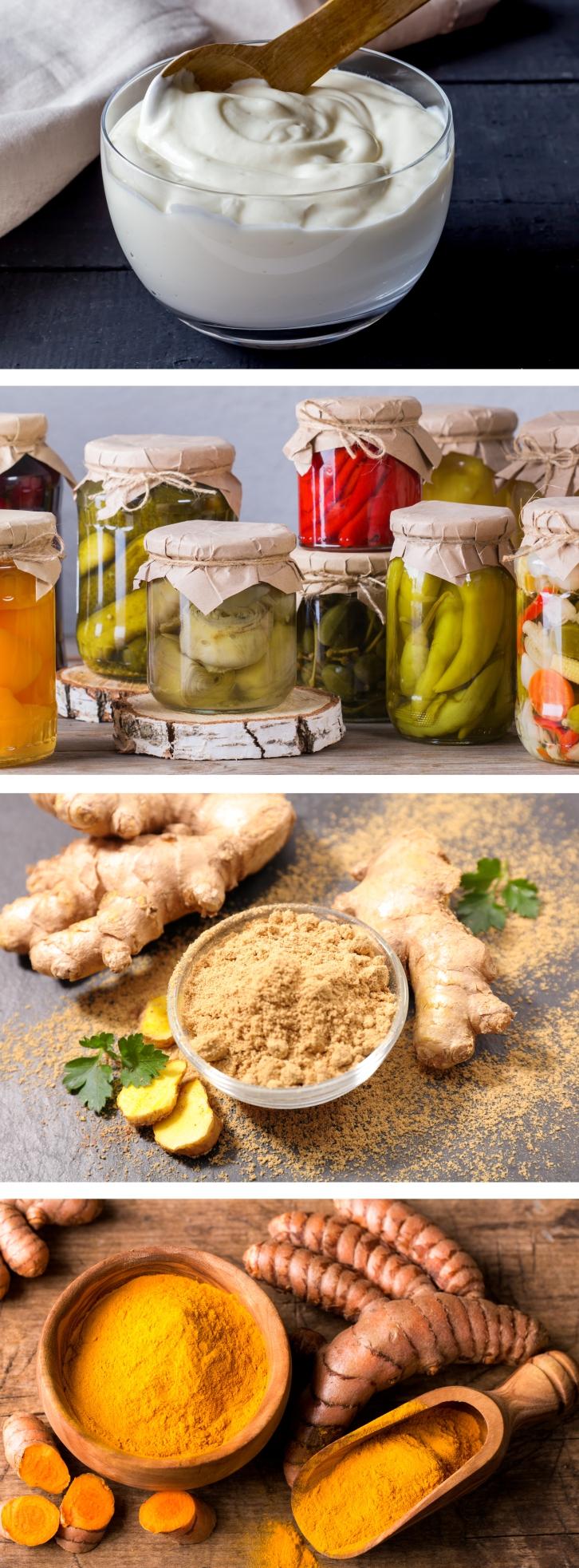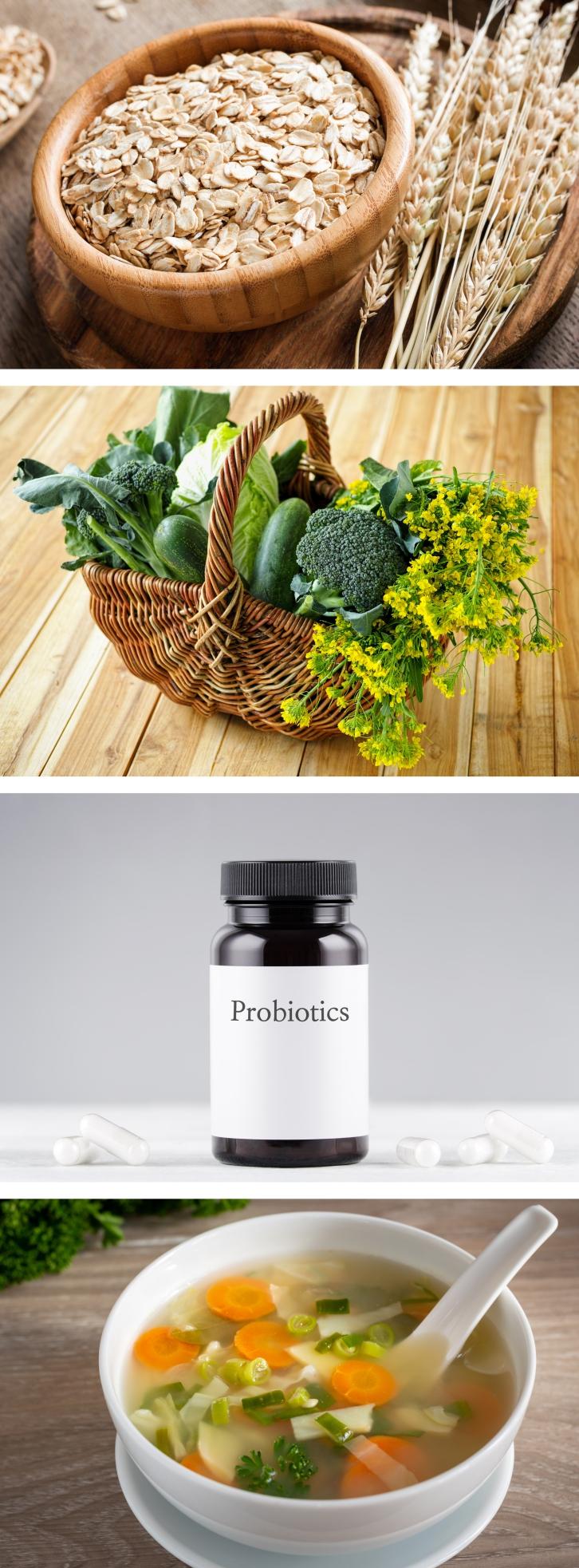
2 minute read
H O W T O PREPARE Y O U R GUT FOR MONSOON SEASON?
Yogurt
Yogurt is a probiotic-rich food that contains beneficial bacteria, such as Lactobacillus and Bifidobacterium, which promote a healthy gut flora. Consuming yogurt regularly can help improve digestion and boost your immune system.
Fermented Foods
Foods like sauerkraut, kimchi, kefir, and kombucha are fermented and contain live cultures of beneficial bacteria. These foods aid in digestion, promote gut health, and enhance the diversity of gut microbiota.
Ginger
Ginger has anti-inflammatory properties and can aid digestion, relieve bloating, and alleviate gastrointestinal discomfort. Sip on ginger tea or include fresh ginger in your meals to support your gut health.
Turmeric
Turmeric is a potent anti-inflammatory spice that can help soothe the gut and reduce inflammation. Adding turmeric to curries, soups, or golden milk can be beneficial for gut health.
Oats
Oats are a good source of soluble fiber, which acts as a prebiotic, supporting the growth of beneficial gut bacteria. Start your day with a warm bowl of oatmeal to provide nourishment to your gut.
Leafy Greens
Dark, leafy greens like spinach, kale, and Swiss chard are rich in fiber, antioxidants, and nutrients that promote a healthy gut. Include them in your meals to support digestive health.
Probiotic Supplements

In addition to incorporating probiotic-rich foods, you may consider taking probiotic supplements during the rainy season to boost your gut health Consult with a healthcare professional to determine the most suitable probiotic strain and dosage for your needs.
Warm Soups and Broths
During the rainy season, warm soups and broths can be comforting and soothing to the gut. Opt for homemade soups packed with vegetables and lean protein to nourish your digestive system.
Herbal Teas
Sip on herbal teas like chamomile, peppermint, or fennel tea, which can aid digestion, relieve bloating, and promote relaxation.
Hydration
Staying hydrated is crucial for maintaining gut health. Drink an adequate amount of water throughout the day to support digestion and prevent constipation.

Remember, it's important to listen to your body and choose foods that work well for you. If you have any specific dietary restrictions or concerns, it's best to consult with a healthcare professional or registered dietitian for personalized advice.

TEXT BY : SUNIL MALHOTRA STOCK IMAGES
Joint pain during the rainy season is a common complaint among many individuals. While the exact reasons for this phenomenon are not yet fully understood, there are a few theories that attempt to explain why joints may experience increased pain during rainy weather

Changes in barometric pressure, which often occur during rainy weather, can affect the expansion and contraction of joint tissues. This may lead to increased pressure and discomfort in the joints. High humidity levels can cause the tissues around the joints to swell, resulting in increased pressure and pain. Sudden temperature drops during rainy seasons can cause joint tissues to contract, leading to stiffness and discomfort. Although there is no definitive cure for joint pain related to the rainy season, certain dietary choices can potentially help alleviate symptoms and support joint health:










